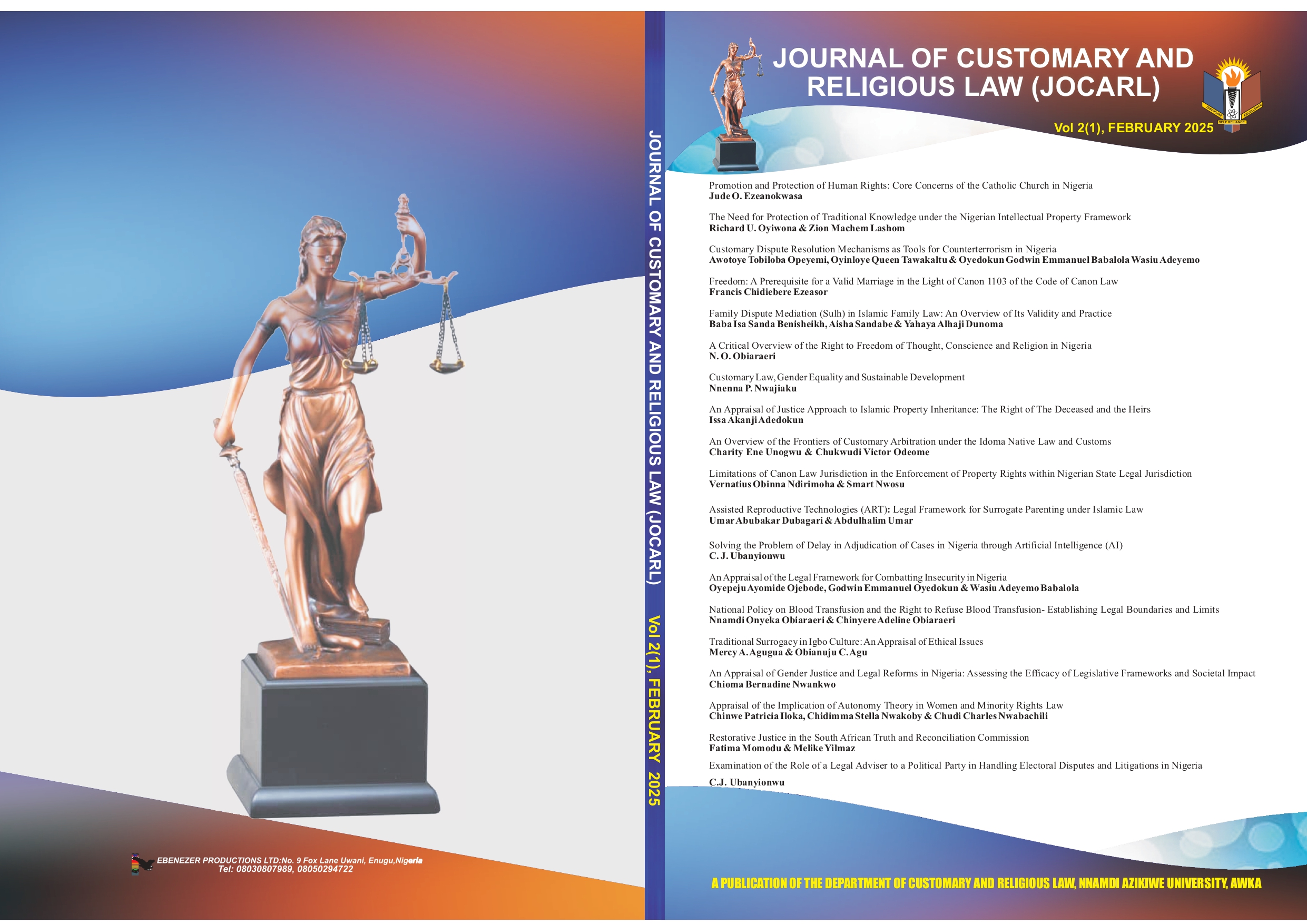Customary Dispute Resolution Mechanisms as Tools for Counterterrorism in Nigeria
Keywords:
Counterterrorism, Customary Law, Dispute Resolution, NigeriaAbstract
Nigeria has seen terrorism breed bitter rivalries rooted in the conflicts that have tended to involve
grievances about politics, marginalisation and economic injustice. The paper explores the potential of
tradition dispute settlement processes as counterterrorism tools by considering these issues. Mediation,
conciliation and arbitration, local, indigenous practices, provide regional, culturally based forms of
conflict resolution that might supplement official counterterrorism measures. This study is mixed methods.
The basis for the doctrines is doctrinal analysis on the law and constitution on customary law and
counterterrorism (that is the Constitution of Nigeria (1999), Terrorism (Prevention) Act 2011 and any
enactment of this Act by courts). The paper will also look at comparisons with other countries where the
traditional systems have been adopted as part of national security policies for guidance. These results
indicate that tradition-based dispute resolution strategies can blunt radicalisation through conversations,
settlements and reconciliation. Yet there are some major hurdles, such as tensions between customary
practices and the constitution, sex exclusion and a lack of formal mechanisms to embed these tools into
Nigeria’s legal system. In this article, a more balanced solution, combining tradition-based dispute
settlement and official counterterrorism, that respects cultural difference without compromising
constitutional or international human rights law is proposed. It ends with policy prescriptions for how to
deploy these tools in a more holistic, localised approach to peacebuilding and national security.

